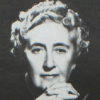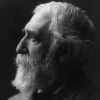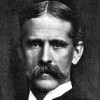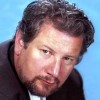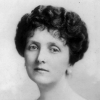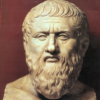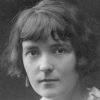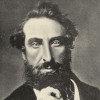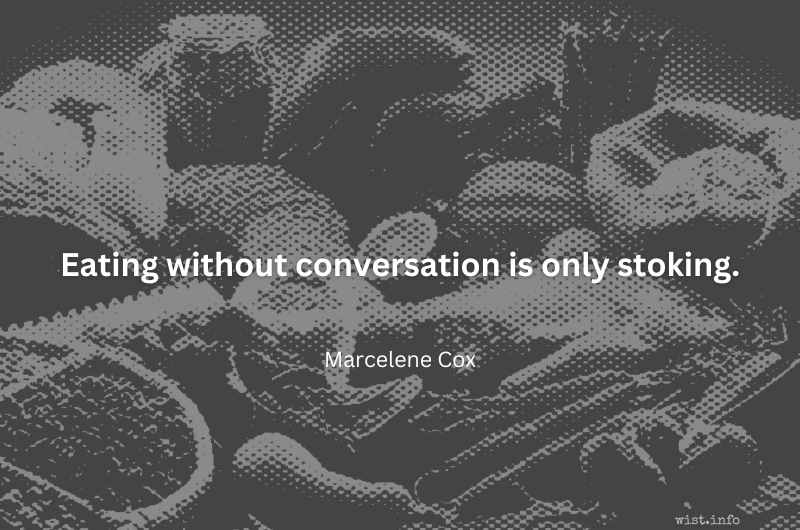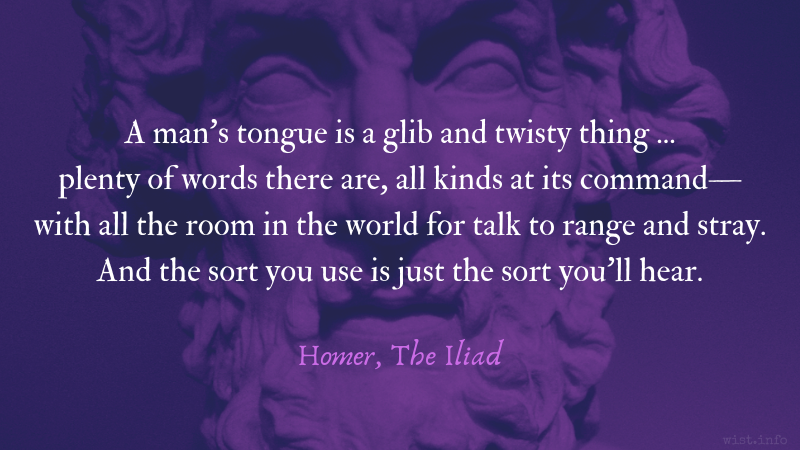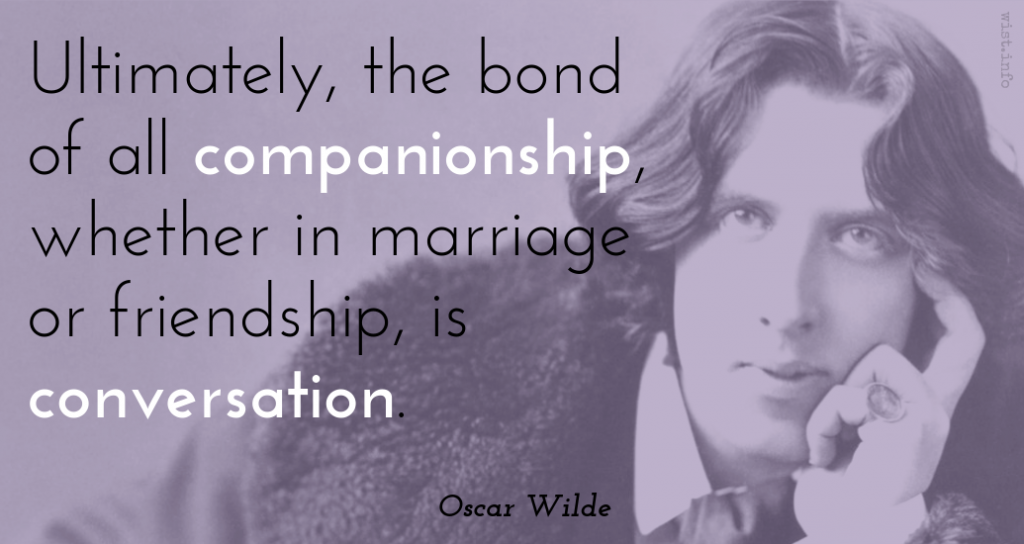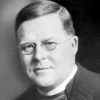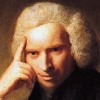A human being, Hastings, cannot resist the opportunity to reveal himself and express his personality which conversation gives him. Every time he will give himself away.
Quotations about:
conversation
Note not all quotations have been tagged, so Search may find additional quotes on this topic.
Every day I add to the list of things I refuse to discuss. The wiser the man, the longer the list.
[Tous les jours j’accrois la liste des choses dont je ne parle plus. Le plus philosophe est celui dont la liste est la plus longue.]
Nicolas Chamfort (1741-1794) French writer, epigrammist (b. Nicolas-Sébastien Roch)
Products of Perfected Civilization [Produits de la Civilisation Perfectionnée], Part 2 “Characters and Anecdotes [Caractères et Anecdotes],” ch. 7 (1795) [tr. Parmée (2003)]
(Source)
Quoting someone reacting to a request to expound on "various public and private abuses" he had received.
(Source (French)). Alternate translation:
Every day I add to the list of things which I will no longer discuss. The more of a philosopher one is, the longer one's list.
[tr. Merwin (1969)]
Conversation is but carving;
Carve for all, yourself is starving:
Give no more to every Guest,
Than he’s able to digest;
Give him always of the Prime;
And but little at a Time.
Carve to all but just enough:
Let them neither starve nor stuff:
And, that you may have your Due,
Let your Neighbours carve for you.Jonathan Swift (1667-1745) English writer and churchman
“An Epistle to a Lady Who Desired the Author to Write Some Verses Upon Her in the Heroic Style,” ll. 123-132 (1732)
(Source)
Often rendered with the first line ending in an exclamation point, and the second line missing.
“I certainly have not the talent which some people possess,” said Darcy, “of conversing easily with those I have never seen before. I cannot catch their tone of conversation, or appear interested in their concerns, as I often see done.”
“My fingers,” said Elizabeth, “do not move over this instrument in the masterly manner which I see so many women’s do. They have not the same force or rapidity, and do not produce the same expression. But then I have always supposed it to be my own fault — because I would not take the trouble of practising.”
CONVERSATION, n. A fair for the display of the minor mental commodities, each exhibitor being too intent upon the arrangement of his own wares to observe those of his neighbor.
Ambrose Bierce (1842-1914?) American writer and journalist
“Conversation,” The Cynic’s Word Book (1906)
(Source)
Included in The Devil's Dictionary (1911). Originally published in the "Devil's Dictionary" column in the San Francisco Wasp (1881-08-26).
“What think you of books?” said he, smiling.
“Books — oh! no. I am sure we never read the same, or not with the same feelings.”
“I am sorry you think so; but if that be the case, there can at least be no want of subject. We may compare our different opinions.”Jane Austen (1775-1817) English author
Pride and Prejudice, ch. 18 [Darcy and Elizabeth] (1813)
(Source)
We are of each an unsocial, taciturn disposition, unwilling to speak, unless we expect to say something that will amaze the whole room, and be handed down to posterity with all of the eclat of a proverb.
The art of the parenthesis is one of the great secrets of eloquence in society.
[L’art de la parenthèse est un des grands secrets de l’éloquence dans la Société.]
Nicolas Chamfort (1741-1794) French writer, epigrammist (b. Nicolas-Sébastien Roch)
Products of Perfected Civilization [Produits de la Civilisation Perfectionée], Part 1 “Maxims and Thoughts [Maximes et Pensées],” ch. 3, ¶ 243 (1795) [tr. Sinicalchi]
(Source)
(Source (French)). Alternate translations:
The art of the parenthesis is one of the great secrets of social eloquence.
[tr. Mathers (1926)]
The art of parenthesis is one of the great secrets of eloquence in society.
[tr. Merwin (1969)]
After all, the only proper intoxication is conversation.
Conversation, as I know it, is like juggling; up go the balls and the balloons and the plates, up and over, in and out, spinning and leaping, good solid objects that glitter in the footlights and fall with a bang if you miss them.
Evelyn Waugh (1903-1966) English novelist
Brideshead Revisited, Book 1, ch. 2 [Anthony Blanche] (1945)
(Source)
Lettuce is like conversation: it must be fresh and crisp, and so sparkling that you scarcely notice the bitter in it.
Charles Dudley Warner (1829–1900) American essayist and novelist
My Summer in a Garden, “Ninth Week” (1871)
(Source)
Modest egoism is the salt of conversation; you do not want too much of it, but if it is altogether omitted, everything tastes flat.
Henry Van Dyke (1852-1933) American clergyman and writer
“The Ristigouche from a Horse-Yacht,” Little Rivers (1895)
(Source)
Sex is a conversation carried out by other means. If you get on well out of bed, half the problems of bed are solved.
Peter Ustinov (1921-2004) English actor, author, director
Interview by Wendy Leigh, Speaking Frankly (1978)
See Von Clausewitz.
Education is the sum of what students teach each other in between lectures and seminars. You sit in each other’s rooms and drink coffee — I suppose it would be vodka and Red Bull now — you share enthusiasms, you talk a lot of wank about politics, religion, art and the cosmos and then you go to bed, alone or together according to taste. I mean, how else do you learn anything, how else do you take your mind for a walk?
Stephen Fry (b. 1957) British actor, writer, comedian
The Fry Chronicles: An Autobiography, Part 1 “College to Colleague” (2012)
(Source)
Whoseover interrupts the conversation of others to make a display of his own wisdom, certainly betrays his ignorance.
Sa'adi (1184-1283/1291?) Persian poet [a.k.a. Sa'di, Moslih Eddin Sa'adi, Mushrif-ud-Din Abdullah, Muslih-ud-Din Mushrif ibn Abdullah, Mosleh al-Din Saadi Shirazi, Shaikh Mosslehedin Saadi Shirazi]
Gulistān [Rose Garden, گُلِستان], ch. 8 “Rules for Conduct in Life,” Maxim 82 (1258) [tr. Gladwin (1806)]
(Source)
Alternate translations:
Whoever interrupts the conversation of others to display the extent of his wisdom, will assuredly discover the depth of his folly.
[tr. Eastwick (1852), #82]
Who interrupts the conversation of others that they may know his excellence, they will become acquainted only with the degree of his folly.
[tr. Burton (1888), #58]
Whoever interrupts the conversation of others to make a display of his own fund of knowledge, makes notorious his own stock of ignorance.
[tr. Ross (1900), #96]
If any one interrupts the speech of others in order that people may know his stock of learning, they will discover the extent of his ignorance.
[tr. Platts (1904), #86]
Those whose conversation has been interrupted by a man trying to show off his intelligence will know him instead by the depth of his ignorance.
[tr. Rehatsek/Newman (2004), #84]
Ideal conversation must be an exchange of thought, and not, as many of those who worry most about their shortcomings believe, an eloquent exhibition of wit or oratory.
Emily Post (1872-1960) American author, columnist [née Price]
Etiquette: The Blue Book of Social Usage, ch. 6 “The Art of Conversation” (1922; 1955 10th ed.)
(Source)
The more the pleasures of the body fade away, the greater to me is the pleasure and charm of conversation.
Plato (c.428-347 BC) Greek philosopher
The Republic [Πολιτεία], Book 1 (c. 375 BC) [tr. Jowett (1871)]
(Source)
Socrates recounting something said to him by Cephalus.
A real education takes place, not in the lecture hall or library, but in the rooms of friends, with earnest frolic and happy disputation. Wine can be a wiser teacher than ink, and banter is often better than books. That was my theory at least, and I was living by it.
Stephen Fry (b. 1957) British actor, writer, comedian
The Fry Chronicles: An Autobiography, Part 1 “College to Colleague” (2012)
(Source)
Conversation is like a dear little baby that is brought in to be handed around. You must rock it, nurse it, keep it on the move if you want to keep smiling.
Katherine Mansfield (1888-1923) New Zealander writer, poet [pen name of Kathleen Mansfield Murry (née Beauchamp)]
“The Dove’s Nest” (1923)
(Source)
The art of conversation, or the qualification for a good companion, is a certain self-control, which now holds the subject, now lets it go, with a respect for the emergencies of the moment.
Ralph Waldo Emerson (1803-1882) American essayist, lecturer, poet
Journal (1854)
(Source)
Reprinted in Journals of Ralph Waldo Emerson, 1820–1872, Vol. 3 (1912).
There is no arena in which vanity displays itself under such a variety of forms as in conversation.
[Il n’est point d’arène où la vanité se montre sous des formes plus variées que dans la conversation.]
Germaine de Staël (1766-1817) Swiss-French writer, woman of letters, critic, salonist [Anne Louise Germaine de Staël-Holstein, Madame de Staël, Madame Necker]
Germany [L’Allemagne], Part 1, ch. 11 “Of the Spirit of Conversation” (1813)
(Source)
(Source (French)).
Sometimes misattributed to Marguerite Gardiner (Lady Blessington), due to this quote (there attributed to de Stael) being included in the Preface to R. R. Madden, The Literary Life and Correspondence of the Countess of Blessington, Vol. 1 (1855).
The true spirit of conversation consists in building on another man’s observation, not overturning it.
Edward George Bulwer-Lytton (1803-1873) English novelist and politician
The Student, Vol. 2, “The New Phaedo,” Conversation 1 (1835)
(Source)
See La Bruyere.
It is all right to hold a conversation but you should let go of it now and then.
Richard Armour (1906-1989) American poet and author
(Attributed)
(Source)
Quoted in Herbert V. Prochnow, Speaker’s Handbook of Epigrams and Witticisms (1955). Origin unknown.
Eating without conversation is only stoking.
Marcelene Cox (1900-1998) American writer, columnist, aphorist
“Ask Any Woman” column, Ladies’ Home Journal (1943-06)
(Source)
Women have very simple tastes. They can get pleasure out of the conversation of children in arms and men in love.
H. L. Mencken (1880-1956) American writer and journalist [Henry Lewis Mencken]
A Little Book in C Major, ch. 1, § 17 (1916)
(Source)
We hear only half of what is said to us, understand only half of that, believe only half of that, and remember only half of that.
Mignon McLaughlin (1913-1983) American journalist and author
The Neurotic’s Notebook, ch. 5 (1963)
(Source)
Argument and flattery are but poor elements out of which to form a conversation.
[Widerspruch und Schmeichelei machen beide ein schlechtes Gespräch.]
Johann Wolfgang von Goethe (1749-1832) German poet, statesman, scientist
Elective Affinities [Die Wahlverwandtschaften], Part 2, ch. 4, “From Ottilie’s Journal [Aus Ottiliens Tagebuche]” (1809) [Niles ed. (1872)]
(Source)
(Source (German)). Alternate translation:
Contradiction and flattery both make bad conversation.
[tr. Hollingdale (1971)]
Not to talk with people although they can be talked with is to waste people. To talk with people although they can’t be talked with is to waste words. A man of understanding does not waste people, but he also does not waste words.
[子曰、可與言、而不與之言、失人、不可與言、而與之言、失言、知者不失人、亦不失言。]
Confucius (c. 551- c. 479 BC) Chinese philosopher, sage, politician [孔夫子 (Kǒng Fūzǐ, K'ung Fu-tzu, K'ung Fu Tse), 孔子 (Kǒngzǐ, Chungni), 孔丘 (Kǒng Qiū, K'ung Ch'iu)]
The Analects [論語, 论语, Lúnyǔ], Book 15, verse 8 (15.8) (6th C. BC – 3rd C. AD) [tr. Dawson (1993)]
(Source)
(Source (Chinese)). Older translations use Legge's original verse divisions and numbering (15.7).
The passage contains a native pun, combining both noun and verb senses of yén [言] (talk), which is difficult to translate into English (leading to blends of "speak" and "talk" and "words"). Alternate translations:
When a man may be spoken with, not to speak to him is to err in reference to the man. When a man may not be spoken with, to speak to him is to err in reference to our words. The wise err neither in regard to their man nor to their words.
[tr. Legge (1861), 15.7]
Not to speak to a man to whom you ought to speak, is to lose your man; to speak to one to whom you ought not to speak is to lose your words. those who are wise will not lose their man, nor yet their words.
[tr. Jennings (1895), 15.7]
When you meet the proper person to speak to and do not speak out, you lose your opportunity; but when you meet one who is not a proper person to speak to and you speak to him, you waste your words. A man of intelligence never loses his opportunity, neither does he waste his words.
[tr. Ku Hung-Ming (1898), 15.7]
Not to enlighten one who can be enlightened is to waste a man; to enlighten one who cannot be enlightened is to waste words. The intelligent man neither wastes his man nor his words.
[tr. Soothill (1910), 15.7]
When you should talk to a man, and don’t, you lose the man; when it’s no use talking to a man, and you talk to him, you waste words. An intelligent man wastes (loses) neither men nor words.
[tr. Pound (1933), 15.7]
Not to talk to one who could be talked to, is to waste a man. To talk to those who cannot be talked to, is to waste one's words. He who is truly wise never wastes a man; but on the other hand, he never wastes his words.
[tr. Waley (1938), 15.7]
If we fail to speak with a man who can be spoken with, we lose a man. If we do speak with a man who cannot be spoken with, our words go for nought. The wise lose neither man nor words.
[tr. Ware (1950), 15.8]
When you find a person worthy to talk to and fail to talk to him, you have lost your man. When you find a man unworthy to talk to and you talk to him, you have lost (i.e., wasted) your words. A wise man neither loses his man, nor loses his words.
[tr. Lin Yutang (1938)]
To fail to speak to a man who is capable of benefiting is to let a man go to waste. To speak to a man who is incapable of benefiting is to let one's words go to waste. A wise man lets neither men nor words go to waste.
[tr. Lau (1979), 15.8]
When dealing with a man who is capable of understanding your teaching, if you do not teach him, you waste the man. When dealing with a man who is incapable of understanding your teaching, if you do teach him, you waste your teaching. A wise teacher wastes no man and wastes no teaching.
[tr. Leys (1997), 15.8]
If a man is worth talking to and you do not talk to him, you lose a man; if a man is not worth talking to and you talk to him, you lose your words. The man of wisdom neither loses a man nor loses his words.
[tr. Huang (1997), 15.8]
When you should talk with one, you do not talk with one, it means to lose the people. When you should not talk with one, you talk with one, it means to lose the word. A wise person does not lose the people, and does not lose the word too.
[tr. Cai/Yu (1998), 15.8 / #392]
To fail to speak to someone who can be engaged is to let that person go to waste; to speak to someone who cannot be engaged is to waste your words. The wise [zhi] do not let people go to waste, but they do not waste their words, either.
[tr. Ames/Rosemont (1998), 15.8]
If he can be talked to and you do not talk to him, you waste the man. If he cannot be talked to and you talk to him, you waste your talk. The knowledgeable will not waste a man, but will also not waste his talk.
[tr. Brooks/Brooks (1998), 15.8]
When a person is capable of understanding your words, and you refuse to speak, you're wasting a person. When a person isn't capable of understanding your words, and you speak anyway, you're wasting words. The wise waste neither words nor people.
[tr. Hinton (1998), 15.8]
If it's someone you ought to speak to and you fail to speak, you waste a person. If it's someone you ought not to speak to and you speak, you waste words. The wise man doesn't waste people and doesn't waste words, either.
[tr. Watson (2007), 15.8]
Not to speak to a man who is capable of absorbing what you say is to let the man go to waste. To speak to a man who is incapable of absorbing what you say is to let your words go to waste. A person of wisdom does not let either men or words go to waste.
[tr. Annping Chin (2014), 15.8]
When it is appropriate and feasible to speak [and give advice] to a person, but you refrain from doing so, you will lose a friend. When it is inappropriate or infeasible to speak to a person, but you speak anyhow, you misspeak.
[tr. Li (2020), 15.8]
A voyage without companionship, that is to say without conversation, is one of the saddest pleasures of life.
Germaine de Staël (1766-1817) Swiss-French writer, woman of letters, critic, salonist [Anne Louise Germaine de Staël-Holstein, Madame de Staël, Madame Necker]
Quoted in Margaret Goldsmith, Madame de Staël (1938)
See also here.
My idea of good company, Mr. Elliot, is the company of clever, well-informed people, who have a great deal of conversation; that is what I call good company.
It is advantageous to an author, that his book should be attacked as well as praised. Fame is a shuttlecock. If it be struck at one end of the room, it will soon fall to the ground. To keep it up, it must be struck at both ends.
Samuel Johnson (1709-1784) English writer, lexicographer, critic
Comment (11-19 Nov 1793), in James Boswell, Journey of a Tour to the Hebrides (1785)
(Source)
A transition from an author’s book to his conversation is too often like an entrance into a large city after a distant prospect. Remotely, we see nothing but spires of temples, and turrets of palaces, and imagine it the residence of splendor, grandeur, and magnificence; but when we have passed the gates, we find it perplexed with narrow passages, disgraced with despicable cottages, embarrassed with obstructions, and clouded with smoke.
Samuel Johnson (1709-1784) English writer, lexicographer, critic
The Rambler, #14 (5 May 1784)
(Source)
Live with those from whom you can learn, — let friendly intercourse be a school for knowledge, and social contact, a school for culture; to make teachers of your friends is to join the need of learning to the joy of converse.
[Tratar con quien se pueda aprender. Sea el amigable trato escuela de erudición, y la conversación enseñanza culta; un hacer de los amigos maestros, penetrando el útil del aprender con el gusto del conversar.]
Baltasar Gracián y Morales (1601-1658) Spanish Jesuit priest, writer, philosopher
The Art of Worldly Wisdom [Oráculo Manual y Arte de Prudencia], § 11 (1647) [tr. Fischer (1937)]
(Source)
(Source (Spanish)). Alternate translations:
Familiar Conversation ought to be the School of Learning and breeding. A man is to make his Masters of his Friends, seasoning the pleasure of conversing with the profit of instruction.
[Flesher ed. (1685)]
Let friendly intercourse be a school of knowledge, and culture be taught through conversation; thus you make your friends your teachers and mingle the pleasures of conversation with the advantages of instruction.
[tr. Jacobs (1892)]
Let friendly relations be a school of erudition, and conversation, refined teaching. Make your friends your teachers and blend the usefulness of learning with the pleasure of conversation.
[tr. Maurer (1992)]
It must be remembered also that he who can talk with himself has no need of another’s conversation.
[Etinim, qui secum loqui poterit, sermonem alterius non requiret.]
Marcus Tullius Cicero (106-43 BC) Roman orator, statesman, philosopher
Tusculan Disputations [Tusculanae Disputationes], Book 5, ch. 40 (5.40) / sec. 117 (45 BC) [tr. Peabody (1886)]
(Source)
(Source (Latin)). Alternate translations:
For he that can speak with himself; will not much need the Discourse of another.
[tr. Wase (1643)]
Whoever can converse with himself doth not need the conversation of another.
[tr. Main (1824)]
For the man who can speak with himself, does not require the discourse of another.
[tr. Otis (1839)]
Whoever can converse with himself doth not need the conversation of another.
[tr. Yonge (1853)]
One who can converse with himself will not miss the conversation of someone else.
[tr. Douglas (1990)]
He who can talk to himself, will have no need of another’s conversation.
[tr. @sentantiq (2012)]
A man who is able to hold conversation with himself will not need another with whom to converse.
[tr. Davie (2017)]
We cannot judge either of the feelings or of the character of men with perfect accuracy, from their actions or their appearances in public; it is from their careless conversation, their half-finished sentences that we may hope with the greatest probability of success to discover their real character.
To a talkative fellow, who poured out a torrent of words and then said, “Let’s hope I haven’t been boring you with my chatter!” he replied, “No, by Zeus, I haven’t been listening.”
[πρὸς τὸν εἰπόντα ἀδολέσχην, ἐπειδὴ αὐτοῦ πολλὰ κατήντλησε, “μήτι σου κατεφλυάρησα;” “μὰ Δί᾽,” εἶπεν: “οὐ γάρ σοι προσεῖχον.]
Aristotle (384-322 BC) Greek philosopher
Attributed in Diogenes Laërtius, Lives and Opinions of Eminent Philosophers [Vitae Philosophorum], Book 5, sec. 11 [tr. Mensch (2018)]
(Source)
(Source (Greek)). Alternate translations:
A chattering fellow, who had been abusing him, said to him, “Have not I been jeering you properly?” “Not that I know of,” said he, “for I have not been listening to you.”
[tr. Yonge (1853)]
To the chatterbox who poured out a flood of talk upon him and then inquired, "Have I bored you to death with my chatter?" he replied, "No, indeed; for I was not attending to you."
[tr. Hicks (1925), sec. 20]
To the man talking endlessly when he assailed him with words and asked “Have I worn you out with nonsense”, he said “By Zeus, no! I wasn’t listening to you.”
[tr. @sentantiq (2016)]
Good conversation can leave you more exhilarated than alcohol; more refreshed than the theater or a concert. It can bring you entertainment and pleasure; it can help you get ahead, solve problems, spark the imagination of others. It can increase your knowledge and education. It can erase misunderstandings, and bring you closer to those you love.
Dorothy Sarnoff (1914-2008) American opera singer, actress, image consultant
Speech Can Change Your Life (1971)
(Source)
There is no such thing as conversation. It is an illusion. There are intersecting monologues, that is all. We speak; we spread round us with sounds, with words, an emanation from ourselves. Sometimes they overlap the circles that others are spreading round themselves. Then they are affected by these other circles, to be sure, but not because of any real communication that has taken place — merely as a scarf of blue chiffon lying on a woman’s dressing table will change color if she casts down on it a scarf of red chiffon.
Rebecca West (1892-1983) British author, journalist, literary critic, travel writer [pseud. for Cicily Isabel Fairfield]
“There Is No Conversation,” The Saturday Evening Post (1928-12-08)
(Source)
In the initial magazine appearance, the third sentence read, "There are interesting monologues." When reprinted in The Harsh Voice: Four Short Novels (1935), and subsequently, interesting was replaced with intersecting.
More discussion about this quotation: There Is No Such Thing as Conversation. It Is an Illusion. There Are Intersecting Monologues, That Is All – Quote Investigator®.
When you are invited to dine, particularly with people you do not know very well, it always helps to have a conversational opener, a phrase which here means “an interesting sentence to say out loud in order to get people talking.” Although lately, it has become more and more difficult to attend dinner parties without the evening ending in gunfire or tapioca, I keep a list of good and bad conversational openers in my commonplace book in order to avoid awkward pauses at the dinner table. “Who would like to see an assortment of photographs taken while I was on vacation?” for instance, is a very poor conversational opener because it is likely to make your fellow diners shudder instead of talk, whereas good conversational openers are sentences such as “What would drive a man to commit arson?,” “Why do so many stories of true love end in tragedy and despair?,” and “Madam DeLustrio, I believe I’ve discovered your true identity!” all of which are likely to provoke discussions, arguments, and accusations, thus making the dinner party much more entertaining.
A man’s tongue is a glib and twisty thing …
plenty of words there are, all kinds at its command —
with all the room in the world for talk to range and stray.
And the sort you use is just the sort you’ll hear.[Στρεπτὴ δὲ γλῶσσ᾽ ἐστὶ βροτῶν, πολέες δ᾽ ἔνι μῦθοι
παντοῖοι, ἐπέων δὲ πολὺς νομὸς ἔνθα καὶ ἔνθα.
ὁπποῖόν κ᾽ εἴπῃσθα ἔπος, τοῖόν κ᾽ ἐπακούσαις.]Homer (fl. 7th-8th C. BC) Greek author
The Iliad [Ἰλιάς], Book 20, l. 248ff (20.248) [Aeneas] (c. 750 BC) [tr. Fagles (1990), l. 287ff]
(Source)
Original Greek. Alternate translations:
A man’s tongue is voluble, and pours
Words out of all sorts ev’ry way. Such as you speak you hear.
[tr. Chapman (1611), ll. 228-29]
Armed or with truth or falsehood, right or wrong,
So voluble a weapon is the tongue;
Wounded, we wound; and neither side can fail,
For every man has equal strength to rail.
[tr. Pope (1715-20)]
The tongue of man is voluble, hath words
For every theme, nor wants wide field and long,
And as he speaks so shall he hear again.
[tr. Cowper (1791), ll. 309-11]
The language of mortals is voluble, and the discourses in it numerous and varied: and vast is the distribution of words here and there. Whatsoever word thou mayest speak, such also wilt thou hear.
[tr. Buckley (1860)]
For glibly runs the tongue, and can at will
Give utt’rance to discourse in ev’ry vein;
Wide is the range of language; and such words
As one may speak, another may return.
[tr. Derby (1864)]
Glib is the tongue of man, and many words are therein of every kind, and wide is the range of his speech hither and thither. Whatsoever word thou speak, such wilt thou hear in answer.
[tr. Leaf/Lang/Myers (1891)]
The tongue can run all whithers and talk all wise; it can go here and there, and as a man says, so shall he be gainsaid.
[tr. Butler (1898)]
Glib is the tongue of mortals, and words there be therein many and manifold, and of speech the range is wide on this side and on that. Whatsoever word thou speakest, such shalt thou also hear.
[tr. Murray (1924)]
The tongue of man is a twisty thing, there are plenty of words there
of every kind, the range of words is wide, and their variance.
The sort of thing you say is the thing that will be said to you.
[tr. Lattimore (1951)]
Men have twisty tongues, and on them speech of all kinds; wide is the grazing land of words, both east and west. The manner of speech you use, the same you are apt to hear.
[tr. Fitzgerald (1974)]
Pliant and glib is the tongue men have, and the speeches in it are many and various -- far do the words range hither and thither; such as the word you speak is the word which you will be hearing.
[tr. Merrill (2007)]
The only reason why we wish to exchange thoughts is that we are different. If we were all the same, we would die dumb. No thought would be expressed after we found that our thoughts were precisely alike. We differ — our thoughts are different. Therefore the commerce that we call conversation.
Robert Green Ingersoll (1833-1899) American lawyer, agnostic, orator
“The Limits of Toleration,” Speech, Nineteenth Century Club of New York (8 May 1888)
(Source)
“What ho!” I said.
“What ho!” said Motty.
“What ho! What ho!”
“What ho! What ho! What ho!”
After that it seemed rather difficult to go on with the conversation.P. G. Wodehouse (1881-1975) Anglo-American humorist, playwright and lyricist [Pelham Grenville Wodehouse]
“Jeeves and the Unbidden Guest” (1919)
(Source)
Marriage is nine-tenths talk.
H. L. Mencken (1880-1956) American writer and journalist [Henry Lewis Mencken]
Diary (1945-05-30)
(Source)
Booksellers are the most valuable destination for the lonely, given the number of books that were written because authors couldn’t find anyone to talk to.
Alain de Botton (b. 1969) Swiss-British author
The Consolations of Philosophy, ch. 4 “Consolation for Inadequacy” (2000)
(Source)
You can discover more about a person in an hour of play than in a year of conversation.
Plato (c.428-347 BC) Greek philosopher
(Spurious)
Frequently attributed to Plato, starting in the 1950s, but not found in his works. Earliest citation is as a Portuguese proverb, in A Polyglot of Foreign Proverbs, tr. Henry G. Bohn (1857): "Mais descobre huma hora de jogo, que hum anno de conversação." For more see here.
Ultimately, the bond of all companionship, whether in marriage or friendship, is conversation.
Oscar Wilde (1854-1900) Irish poet, wit, dramatist
Letter (1897-03) to Alfred Douglas, “Epistola: In Carcere et Vinculis”
(Source)
Wilde titled the letter, written while in prison in Reading, England, Epistola: In Carcere et Vinculis ("Letter: In Prison and in Chains"). Upon his release, the letter was entrusted to Robert Ross, who in 1905, after Wilde's death, published an edited version under the title De Profundis ("From the Depths," from Psalm 130), and later editions have retained that name.
This quotation was not in the 1905 edition, but in the eventually fully-restored version in Wilde's complete letters.
More information on the history of the letter here.
A single conversation across the table with a wise man is better than ten years’ study of books.
(Other Authors and Sources)
Chinese proverb
Given in translation in Henry Wadsworth Longfellow, Hyperion, ch. 7 (1839).
Most people have a furious itch to talk about themselves and are restrained only by the disinclination of others to listen. Reserve is an artificial quality that is developed in most of us but as the result.
W. Somerset Maugham (1874-1965) English novelist and playwright [William Somerset Maugham]
The Summing Up, ch. 19 (1938)
(Source)
But remember that talking is one of the fine arts — the noblest, the most important, the most difficult — and its fluent harmonies may be spoiled by the intrusion of a single harsh note. Therefore conversation which is suggestive rather than argumentative, which lets out the most of each talker’s results of thought, is commonly the pleasantest and the most profitable.
Reading good books is like having a conversation with the most distinguished men of past ages — indeed, a rehearsed conversation in which these authors reveal to us only the best of their thoughts.
[Que la lecture de tous les bons livres est comme une conversation avec les plus honnêtes gens des siècles passés, qui en ont été les auteurs, et même une conversation étudiée en laquelle ils ne nous découvrent que les meilleures de leurs pensées.]
René Descartes (1596-1650) French philosopher, mathematician
Discourse on Method [Discours de la méthode], Part 1 (1637) [tr. Cottingham, Stoothoff (1985)]
(Source)
(Source (French)). Alternate translations:
The reading of good books, is like the conversation with the honestest persons of the past age, who were the Authors of them, and even a studied conversation, wherein they discover to us the best only of their thoughts.
[tr. Newcombe ed. (1649)]
The perusal of all excellent books is, as it were, to interview with the noblest men of past ages, who have written them, and even a studied interview, in which are discovered to us only their choicest thoughts.
[tr. Veitch (1901)]
I was aware that the reading of all good books is indeed like a conversation with the noblest men of past centuries who were the authors of them, nay a carefully studied conversation, in which they reveal to us none but the best of their thoughts.
[tr. Haldane, Ross (1911)]
The reading of all good books is like a conversation with the finest men of past ages, who are their authors, and even a studied conversation in which they unfold to us only the best of their thoughts.
[tr. Kennington (1964-76)]
The reading of good books is like a conversation with the best men of past centuries -- in fact like a prepared conversation, in which they reveal only the best of their thought.
[tr. Ascombe, Geach (1971)]
The reading of all good books is like a conversation with the finest men of past centuries.
[Common translation, unsourced]
Notoriously insensitive to subtle shifts in mood, children will persist in discussing the color of a recently sighted cement-mixer long after one’s interest in the topic has waned.
Fran Lebowitz (b. 1950) American journalist
“Children: Pro or Con,” Metropolitan Life (1978)
(Source)

